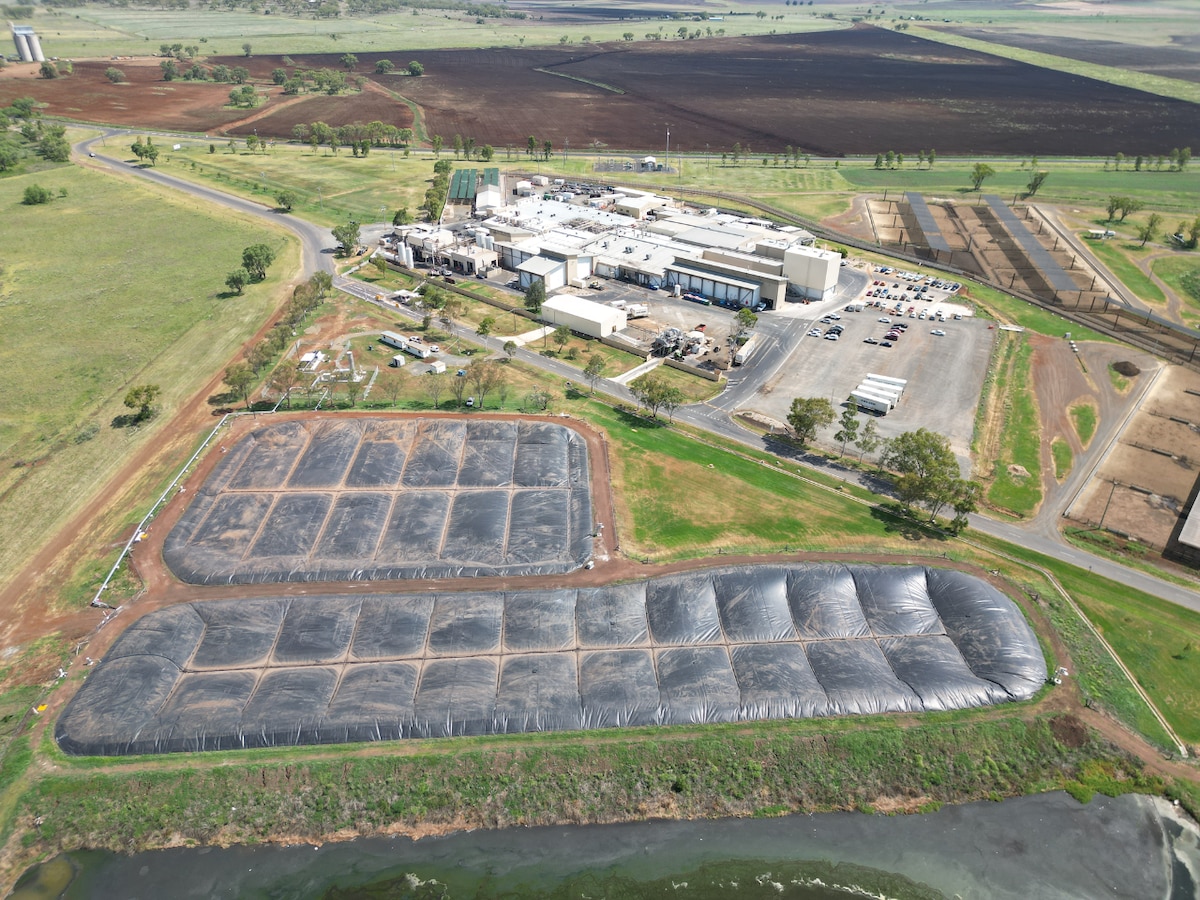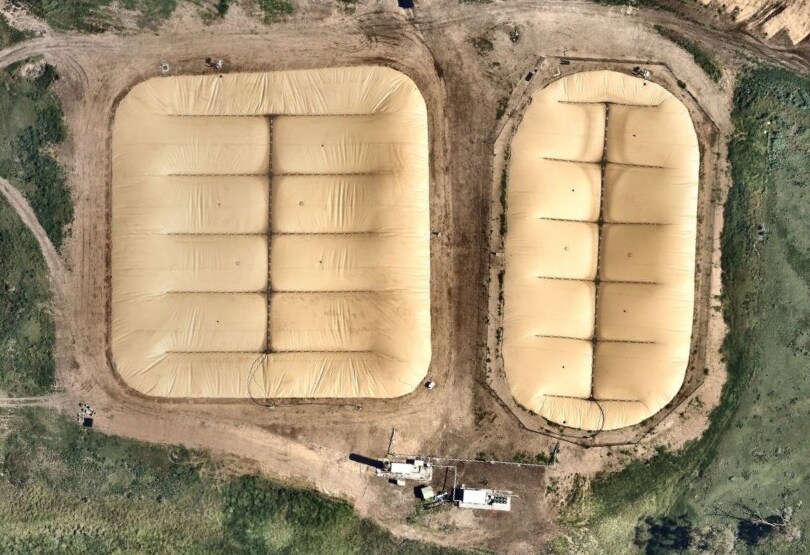Helping JBS Foods Australia convert waste into biogas
Supporting a leading food processor in reducing their greenhouse gas emissions and energy costs.
Supporting a leading food processor in reducing their greenhouse gas emissions and energy costs.

JBS Foods Australia (JBS), one of the largest meat and food processors in the country, aim to be Net Zero by 2040. They partnered with us to install bioenergy systems at their Scone and Beef City sites, replacing their natural gas heating with renewable biogas from its wastewater emissions.
We installed bioenergy systems for JBS’s Beef City and Scone processing plants. These systems use the organic content in the wastewater, and direct it to covered anaerobic lagoons. There, the naturally occurring biogas from the wastewater is captured, treated and pumped by AGL-designed and manufactured gas delivery skids to the plant.
The renewable biogas is used by a boiler to produce hot water for the meat processing plant, displacing natural gas. This provides significant savings on natural gas expenses, as well as a reduction in greenhouse gases by preventing biogas from entering the atmosphere.

Renewable biogas generated: 64 terajoules
Gas expenses reduced: an estimated $1.2 million²
Greenhouse gas emissions reduced: 34,750 tonnes of carbon dioxide equivalent³
Australian Carbon Credit Units: $0.3 million³
Renewable biogas generated: 48 terajoules
Gas expenses reduced: an estimated $1.25 million²
Greenhouse gas emissions reduced: 27,700 tonnes of carbon dioxide equivalent³
Australian Carbon Credit Units: $0.26 million³
We took care of the design and build of the bioenergy systems, including lagoon covers, biogas pipelines, burner and boiler modifications, and integration of new and existing systems. Our expertise in bioenergy solutions along with our strong partnership and project management skills delivered a tailored solution for JBS.
Learn how your business could save on energy costs with biogas solutions and how we can support you on your decarbonisation journey.
¹These estimates are based on AGL's understanding of the customer's annual energy consumption at the premises at the time of proposal and AGL's modelling of the biogas systems’ expected annual energy output at the premises based on the as-built generation estimates.
²The estimate of gas expenses reduced is an estimate of the difference in energy costs payable by the customer over the relevant period, before and after installation of the biogas systems. The estimate is based on various assumptions at the time of AGL’s proposal, including gas rates and gas consumption at time of proposal.
³This is an estimate based on AGL’s modelling of the biogas systems’ expected annual energy output at the premises at the time of proposal, converted using the relevant National Greenhouse Account Factor for scope 2 emissions at the time of proposal.